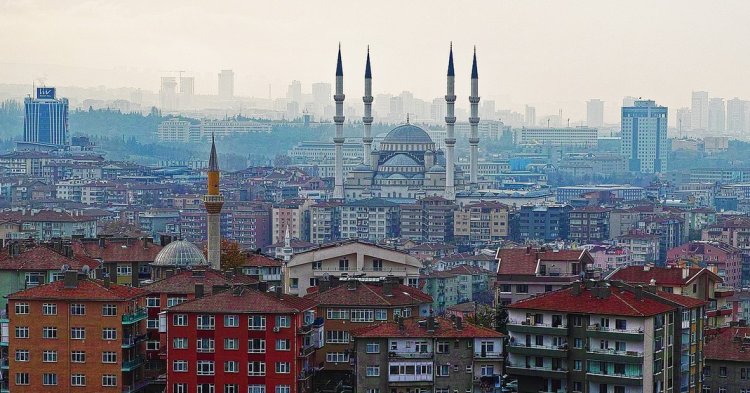The political situation in Turkey and the South Caucasus countries has both similarities and differences. All four countries have significant links with the European Union (EU): Georgia signed a full Association Agreement with Brussels in 2016; Armenia has entered into a less restrictive ad hoc agreement; and Azerbaijan cooperates across areas within the framework of the Eastern Partnership, which Georgia and Armenia are also members of. As for Turkey, the country has, despite a currently stalled accession process, been trying to join the EU for more than 20 years.
Their respective democratic situation, however, is not at all comparable. Georgia seems to be the country equipped with the most stable institutions, despite its corruption issues and the excessive interference from Russia, whose military currently occupies 15% of Georgian territory. The new Armenian government is also promising, despite great challenges the country faces. Turkey seems to be moving irredeemably towards authoritarianism and omnipotent presidency built around Recep Tayyip Erdoğan. Similarly, Azerbaijan has been held in an iron grip by the Aliyev family since 1993 (the son, Ilham, succeeded his father, Heydar, in 2003) the regime is frequently classed as “authoritarian” or even “dictatorial”.
Just like democracy, press freedom varies greatly.
To simplify things, the region can be divided in two: Georgia and Armenia on the one hand; Turkey and Azerbaijan on the other. The first two countries, which are close to the EU (particularly in Georgia’s case), have a much more encouraging state of affairs when it comes to media pluralism: indeed, they are respectively ranked 60th and 61st in the 2020 Reporters Without Borders (RSF) ranking. Georgia’s independence in 1991 saw the creation of many newspapers and free television channels. The media was quickly viewed as a respectable body, which became even more diversified after the 2003 revolution. Despite President Mikheil Saakashvili attempted to clamp down on the media in the late 2000s, recent years have seen reforms which have stabilised the media industry, according to RSF.
In Armenia, media pluralism has taken a little longer to establish itself. A few years ago, RSF still considered Armenia “not free”: in 2018, it ranked 80th on their table. The Velvet Revolution and Nikol Pashinyan’s ascent to power in May 2018 were seen as a promising moment for freedom of the press. A journalist himself, who once ran the Haykakan Zhamanak newspaper, Pashinyan was part of many opposition movements prior to his rise to power. Indeed, according to RSF, new media had served as a ‘sounding board’ during the Velvet Revolution. There has been a clear improvement for Armenia in the 2020 ranking, even though strong media polarisation (like that in Georgia) is a challenge for a new leader who must meet the electorate’s expectations for a free press.
On the other hand, Turkey, and Azerbaijan, who place 154th and 168th respectively on the aforementioned ranking, are ’black holes’ of sorts for freedom of expression, and open-air prisons for journalists. After ranking very poorly for many years, Turkey has been the scene of unprecedented anti-journalist acts since the attempted coup in the summer of 2016. The Turkish media were placed under the control of companies with close governmental ties. Historic newspapers such as Cumhuriyet have been particularly targeted by Ankara: according to Amnesty International in 2018, Turkey was possibly the country detaining the most journalists in the world (it is thought that 1/3 of all imprisoned journalists are in Turkey). Despite the release of around twenty journalists since then (according to the Council of Europe’s platform to promote the protection of journalism and safety of journalists) the situation remains disastrous. It is a long trend of decline, according to journalist Aysegül Sert, cited by radio station France Culture: “Before, in Turkey when you said “I am a journalist, I’m here to give you a voice” to a Turkish citizen, they were happy to be heard. Today […] we have difficulty when naming our sources, there is a fear around it all.”
Harassment of journalists has even been exported over to western Europe. In 2018, in Southern France, sympathisers of the Turkish president attempted to remove the large-format front cover of the French magazine Le Point showing a picture of Erdoğan with the title ‘Dictator’. In an interview with TV5 Monde, French journalist Loup Bureau, imprisoned in Turkey in 2017, admitted to having received death threats on Twitter after the release of his book telling the story of his detention.
In Azerbaijan, pressure on the media has always been present, but has clearly intensified since 2013. Much of the print media, including publications such as Zerkalo and Azadlig, has not survived this oppressive turning point. The following year, the only independent press agency in the country, Turan, was hounded by the authorities. The internet cannot escape this censorship either, even though independent bloggers continuously try to shed light on the Aliyev dictatorship. National media is under the government’s orders, and the most recent elections, at the start of this, year demonstrated this well. Journalists are tracked, even abroad: Afgan Mukhtarli, an Azerbaijani journalist in exile, disappeared in Georgia in 2017, before reappearing in prison in Azerbaijan.
Despite everything, there are glimmers of hope, with the acquittal of the journalist Aslı Erdoğan last February, who was charged with terrorism offences for having used the expression “pressure on the press”. Protests for press freedoms regularly take place in the country, even if they do not result in change.


Follow the comments: |
|
